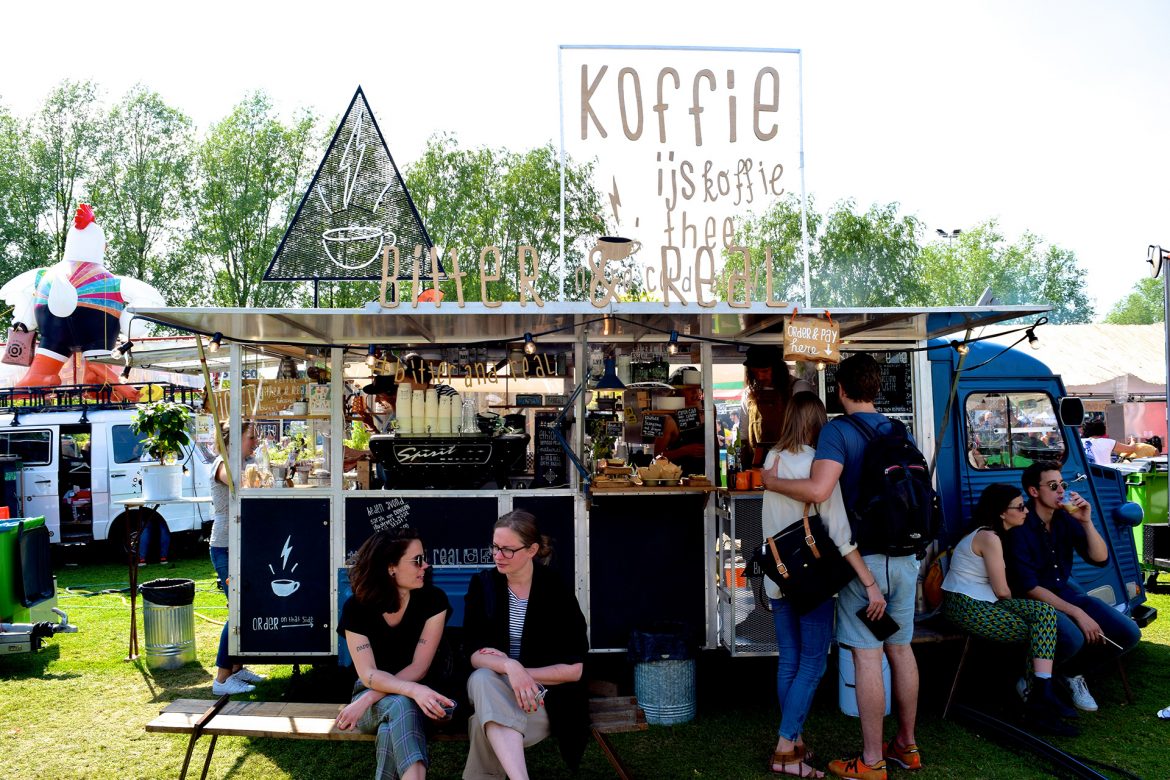
In the Northern Hemisphere, official fun-in-the-sun season is over. Yet some lucky autumnal gallivanters in the Netherlands are finding themselves at events with a parking spot reserved for Bitter & Real. After a busy summer, the electric mobile specialty coffee company that advocates “more coffee, less fossil fuel” is still on the road. Upcoming stops include Rotterdam’s creative lifestyle-outfitting Swan Market, Amsterdam’s annual jewelry fair, and a culinary disco bash in a Breda church.
It was at a food truck festival in Amsterdam’s Westerpark that Sprudge caught up with owners Laura van der Have and Minos Eigenheer. Amidst all the vying vehicles and victuals at Rollende Keuekens this past May, Bitter & Real stood out. Finished in matte indigo paint, the 1971 Citroën HY Van is haloed by a hand-drawn wood cutout of the brand’s name and logo—a lightning bolt striking a black demitasse.
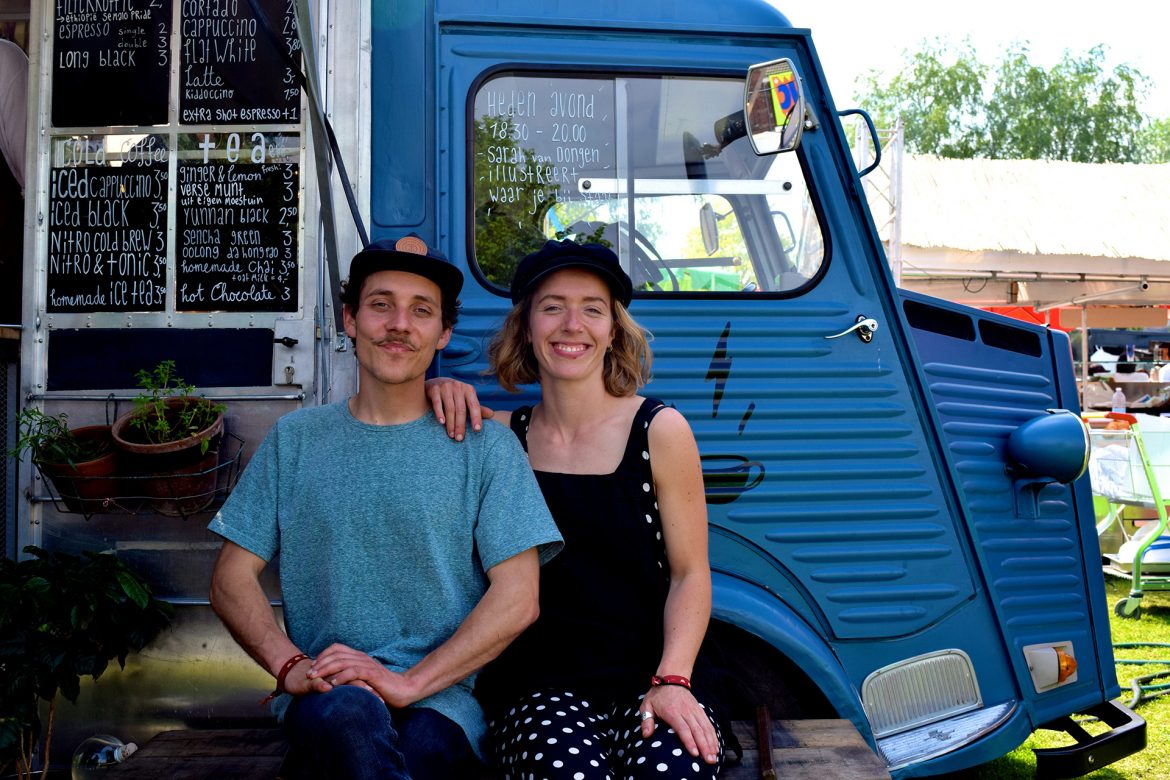
Eigenheer and Van der Have
Van der Have and Eigenheer have been serving specialty coffee from the fully electric vehicle since fall 2015. They spent months refurbishing, essentially, a rusty cab and chassis after purchasing it secondhand from, in their words, “a Citroën old-timer freak” in Germany. Today, 300-kilo electric batteries get all three tons of it moving “90-ish kilometers per hour,” says Van der Have, who assures, “with the wind on your back, it can go up to 107.”
Li-ion batteries also power the equipment inside. That includes a Tetris-like arrangement of a two-group Kees van der Westen Spirit, a Victoria Arduino Mythos One grinder, a Mahlkönig EK43 grinder, a 3Temp one-group Hipster Brewer, a Marco Ecoboiler WMT5, as well as two fridges (to hold a couple hundred liters of milk, nitro cold brew, beer, and iced tea kegs), an oven to bake fresh sweets (rhubarb frangipane tartlets, anyone?), and a dishwasher.
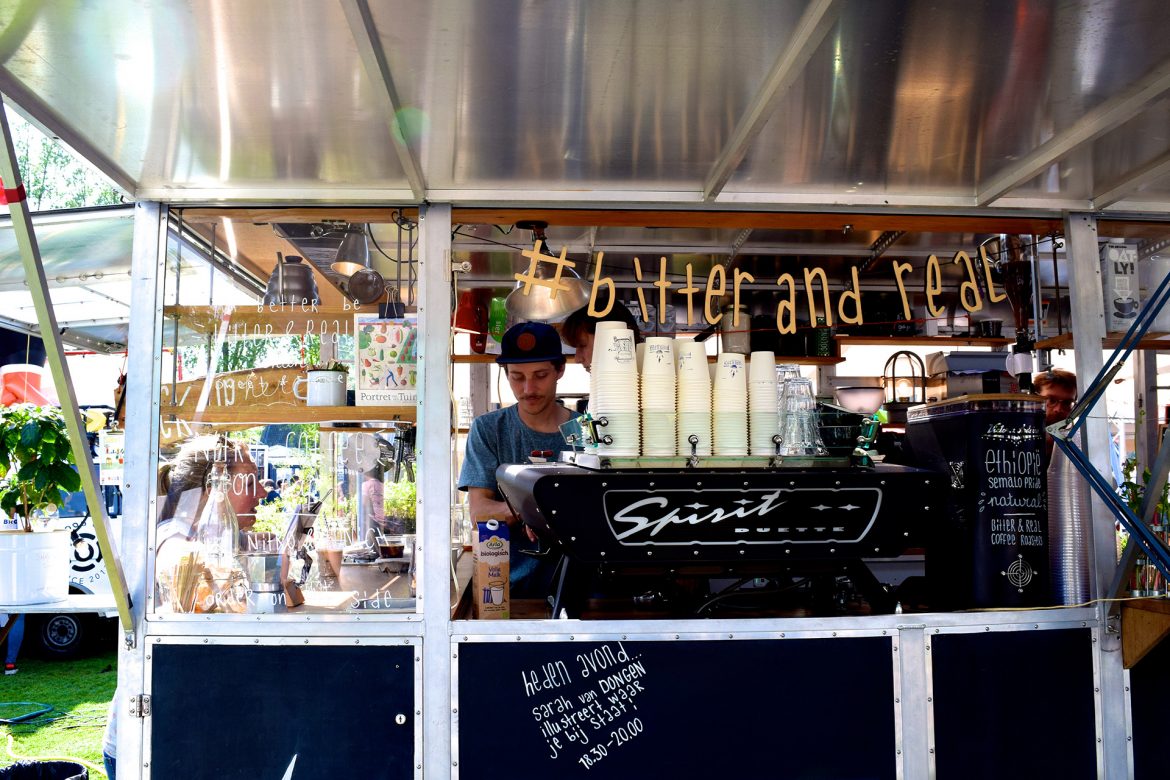
To charge its batteries and run all the appliances, a single cord from within the vehicle can plug into some on-location power source. Additionally, 12m2 of solar panels line the roof, producing 1800 watt-peaks of solar energy—asked for a layperson’s equivalent, Van der Have estimates that “on a nice summer day that is enough to constantly use a hairdryer.”
Of the choice to use solar panels, she explains: “We wanted to be able to power all this coffee gear anywhere without taking a generator, so we can also function off-grid. And that’s what we often do for catering [at events] where a 400-volt phase power supply is not available.”
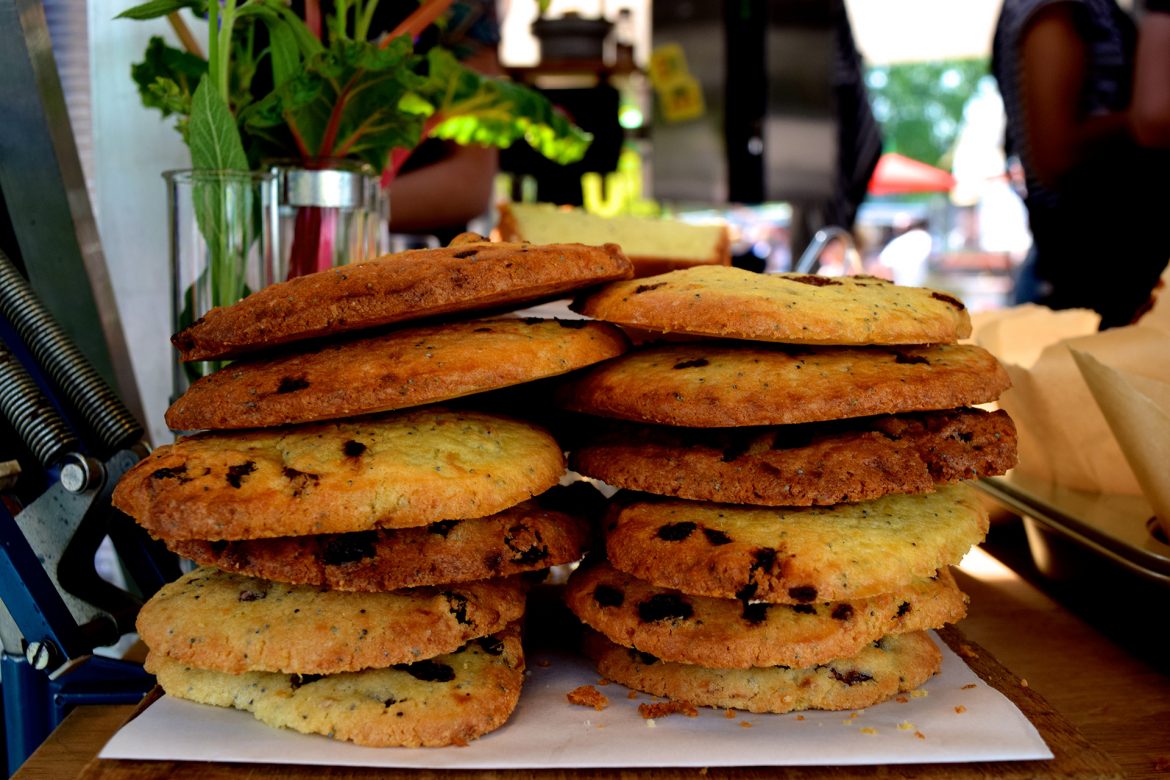
Indigenous to warm climates though they may seem, the couple met while snowboarding in Eigenheer’s native Switzerland. Before moving to the Netherlands, he had worked for Revita, a small company that designs water turbines. Van der Have started in the hospitality industry at age 15, at boutique hotel and restaurant Villa Augustus in Dordrecht. A 15-minute train ride from Rotterdam, the river-surrounded city is nowadays Bitter & Real’s headquarters. Van der Have’s parents have an estate there, which hosts their chicken coop, a garden yielding ingredients for their baked goods, and an old barn sheltering the parked truck and their Diedrich IR-12. Since January, they have been roasting their own line of coffees, providing for themselves, online customers, and, recently, Villa Augustus.
At a typical festival, five or six Bitter & Real staff work in two shifts, and up to five can simultaneously—and seemingly merrily—fit in the tight space. On a good day, they report selling 800 coffees. It is a compact, classy operation, but eco-friendly portability comes with concessions.
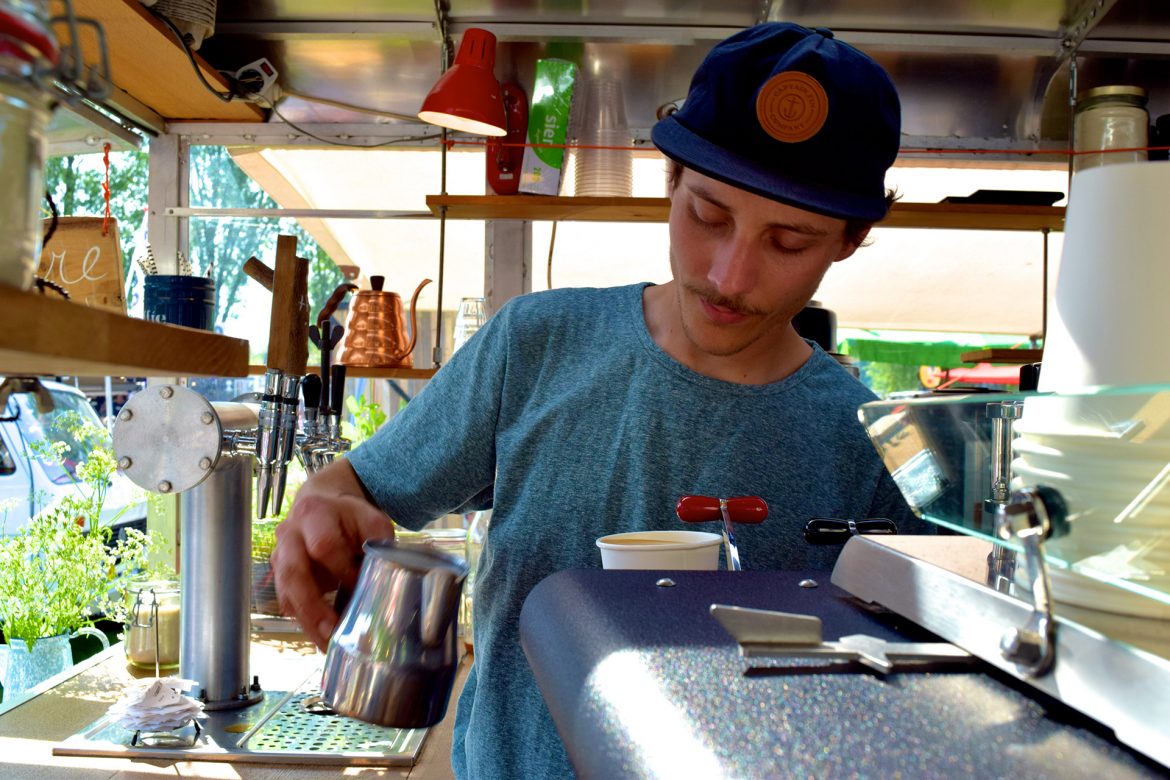
“Often at catering locations, there is no power outlet that can handle a Spirit and all the espresso bar gear without the help of a big battery bank with inverter,” says Van der Have. “During peak hours or while the espresso machine is warming up, we need about six times more energy, which gets drawn from the battery.”
Plus, it is “paper cups most of the time—we very much prefer using porcelain.” Still, she maintains: “We have sooo many people come to drink coffee that you wouldn’t have in a cafe.”
Bitter & Real have undoubtedly upped the standards in mobile coffee—this year all the more apparent with the brand’s freshly roasted beans onboard. However, that was not their explicit intention. Rather, it was “his sustainability vision and my coffee vision [that came] together in this van,” says Van der Have of their enterprise. And, she points out: “It was not that I really wanted to change festivals. We kinda rolled into it.”
Once autumn ends, “we have a semi-winter sleep,” she says, though admits that preparations for the upcoming summer never stop. An exciting project will be putting the finishing touches on their second electric vehicle creation, a 1984 Citroën ideal for hauling extra crew, supplies, and really, anything under the sun.
For more information and their schedule, visit Bitter & Real’s official website and follow them on Facebook, Twitter, and Instagram.
Karina Hof is a Sprudge staff writer based in Amsterdam. Read more Karina Hof on Sprudge.
The post More Coffee, Less Fossil Fuel: Bitter & Real Is The Netherlands’ Eco-Coffee Truck appeared first on Sprudge.

